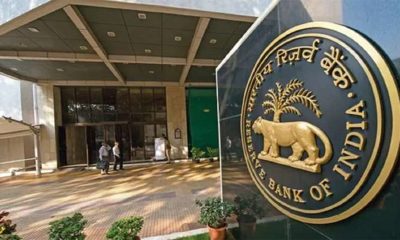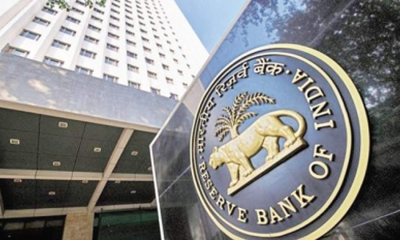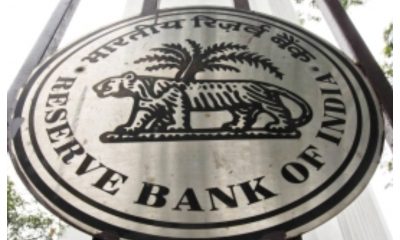Business
RBI doubles housing loan limits for co-operative banks
Taking into account the increase in prices since the housing loan limits were last revised and considering the customer needs, central bank Reserve Bank of India decided to increase the existing limits on individual housing loans by the cooperative banks.
Accordingly, the limits for Tier I or Tier II urban cooperative banks shall stand revised from Rs 30 lakh or Rs 70 lakh to Rs 60 lakh or Rs 140 lakh, respectively, which essentially means doubling of the limit.
The increased limits will apply for Primary (Urban) Co-operative Banks (UCBs), and Rural Cooperative Banks (RCBs) — State Cooperative Banks and District Central Cooperative Banks.
For RCBs, the limits will increase from Rs 20 lakh to Rs 50 lakh for such banks with assessed net worth less than Rs 100 crore; and from Rs 30 lakh to Rs 75 lakh for other such RCBs.
A detailed circular will be issued separately, the RBI said in a statement.
“The 100 per cent upward revision in credit limit for individual homebuyers through cooperative banks will provide increased credit access to homebuyers in suburban areas as well as tier-2/3 cities,” said Samantak Das, chief economist, and head of research and REIS, India, JLL.
According to Dhruv Agarwala, Group CEO, Housing.com, PropTiger.com & Makaan.com: “…the RBI’s announcement to increase the limit for individual housing loans by state and district cooperative banks by 100 per cent is a positive move that will cushion some of the impact of the rate hike. Credit flow to the housing sector is also likely to improve with rural cooperative banks starting to finance residential projects.”
Besides, considering the growing need for affordable housing and to realise their potential in providing credit facilities to the housing sector, the RBI decided to allow State Co-operative Banks (StCBs) and District Central Co-operative Banks to extend finance to Commercial Real Estate – Residential Housing (CRE-RH) within the existing aggregate housing finance limit of 5 per cent of their total assets.
In order to attain harmonisation of regulatory framework across REs and to provide convenience of banking services to the customers at their door-step, it has been decided to permit Urban Co-operative Banks to extend doorstep banking services to their customers on par with scheduled commercial banks.
RBI also proposed allowing linking of credit cards to UPI. To start with, Rupay credit cards will be enabled with this facility.
“This arrangement is expected to provide more avenues and convenience to the customers in making payments through UPI platform. This facility would be available after the required system development is complete. Necessary instructions will be issued to NPCI separately,” the statement said.
All these measures were announced this morning while pronouncing the outcome of the ongoing monetary policy review meeting that started on Monday.
RBI on Wednesday raised the repo rate by 50 basis points to 4.9 per cent to tame rising inflation.
RBI Governor Shaktikanta Das on Wednesday categorically said India’s retail inflation is likely to stay above the tolerance level till third quarter of FY23 before moderating below 6 per cent.
For FY23, RBI sees overall inflation at 6.7 per cent, with 7.5 per cent in Q1, 7.4 per cent in Q2, 6.2 per cent in Q3, and 5.8 per cent in Q4, taking into consideration the normal monsoon and average crude oil basket price of $105 per barrel.
Coming to growth, India’s real GDP growth in FY23 is seen at 7.2 per cent, will 16.2 per cent in Q1, 6.2 per cent in Q2, 4.1 in Q3, and 4.0 in Q4, with risks broadly balanced, Das said.
Business
Sensex crosses 81,000 Mark, Nifty Jumps 157 Points On Strong Metal & Auto Stocks
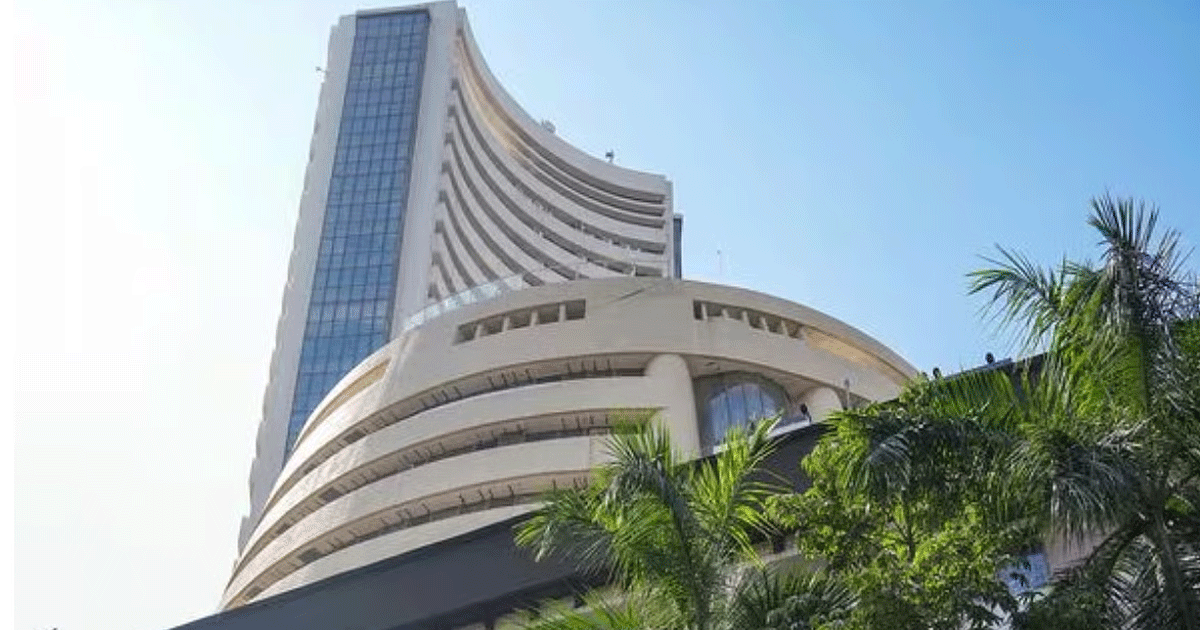
Mumbai: The Indian stock market ended Monday on a strong note, with the BSE Sensex rising 418.81 points (0.52%) to close at 81,018.72, crossing the key 81,000 mark. During the day, it touched a high of 81,093.19. The NSE Nifty also surged by 157.40 points (0.64%) to end at 24,722.75, after hitting an intraday high of 24,734.65.
Top gainers and losers
Among major gainers on the Sensex were Tata Steel, BEL, Adani Ports, TCS, Tech Mahindra, Bharti Airtel, HCL Tech, Trent, M&M, Reliance Industries, UltraTech Cement and L&T.
On the flip side, Power Grid, HDFC Bank, ICICI Bank, and Hindustan Unilever ended the session with losses.
Why the market rallied
The market’s rally was mainly driven by strong performances in the metal and auto sectors. According to experts, a weakening US dollar, strong auto sales, and positive Q1 results from key companies helped boost investor confidence.
Vinod Nair, Head of Research at Geojit Financial Services, said,
“Consumption-driven companies are showing recovery in volume demand. Also, weak US job data may lead to interest rate cuts by the Federal Reserve.”
Global cues positive
Asian markets mostly ended in the green with Hong Kong, South Korea, and China posting gains. However, Japan’s Nikkei closed in red.
European markets were trading positively, while US markets had ended lower on Friday.
Oil prices also slipped, with Brent crude falling 1.15% to USD 68.87 per barrel.
Meanwhile, Foreign Institutional Investors (FIIs) sold shares worth Rs 3,366.40 crore on Friday, as per exchange data.
Business
India Lost ₹22,842 Crore To Cybercriminals & Fraudsters In 2024: DataLEADS

India lost Rs 22,842 crore to cybercriminals and fraudsters in 2024, DataLEADS, a Delhi-based media and tech company, said in its report on widespread digital financial frauds in the country. The amount stolen by digital criminals and fraudsters last year was nearly three times more than the Rs 7,465 crore in 2023 and almost 10 times more than the Rs 2,306 in 2022, DataLEADS said in ‘Contours of Cybercrime: Persistent and Emerging Risk of Online Financial Frauds and Deepfakes in India.
Prediction For Cyber-Crime Frauds
The Indian Cybercrime Coordination Centre, I4C, a federal agency that liaises between state and central law enforcement, predicts Indians will lose over Rs 1.2 lakh crore this year. The number of cybercrime complaints has spiked similarly; nearly twenty lakh were reported in 2024, up from around 15.6 lakh the year before and ten times more than were logged in 2019.
The surge in the number of cybercrime complaints and the volume of money lost points to one inescapable conclusion – India’s digital crooks are getting smarter and more efficient, and, in a country with a staggering nearly 290 lakh unemployed people, their ranks are increasing.
Bank-related frauds have increased dramatically; the Reserve Bank of India reported a nearly eightfold jump in the first half of FY 2025/26 compared to the same period last year. And the amount of money lost was staggering – Rs 2,623 crore to Rs 21,367 crore. Private sector banks accounted for nearly 60 per cent of all such incidents. But it was customers in public sector banks who were worst-hit; they lost Rs 25,667 crore in all.
Why have these numbers jumped so much over the past three years?
Because of the increased use of digital payment modes – i.e., smartphone-enabled services like Paytm and PhonePe – and the sharing and processing of financial details online – via (what many believe are encrypted and fail-safe) messaging platforms like WhatsApp and Telegram.
Federal data says there were over 190 lakh UPI, or unified payment interface, transactions in June 2025 alone, and these were worth a combined Rs 24.03 lakh crore. Digital payments’ value has grown from roughly Rs 162 crore in 2013 to Rs 18,120.82 crore in January 2025, and India accounts for nearly half of all such payments worldwide.
COVID-19
Much of this increase can be attributed to the pandemic and the subsequent lockdowns.
During COVID-19, the government pushed for a switch to UPI apps like Paytm to ensure social distancing and minimise contact with currency notes, via which the virus could be transmitted.
Digital Payment Tools In Rural Areas
The government also reasoned that digital payment tools would ensure greater penetration of financial services, particularly in rural areas. By 2019, India already had 440 million smartphone users and data rates were among the cheapest in the world – 1 GB cost Rs 200, or less than $3.
Insurance sector scams were also common. These included life, health, vehicle, and general, and are becoming an increasingly lucrative option for cybercriminals, particularly as insurance companies urge customers to opt for app-based services.
Business
Mukesh Ambani Planning To Introduce ₹52,200 Crore Worth IPO, Reliance To List Jio Infocomm In Stock Market
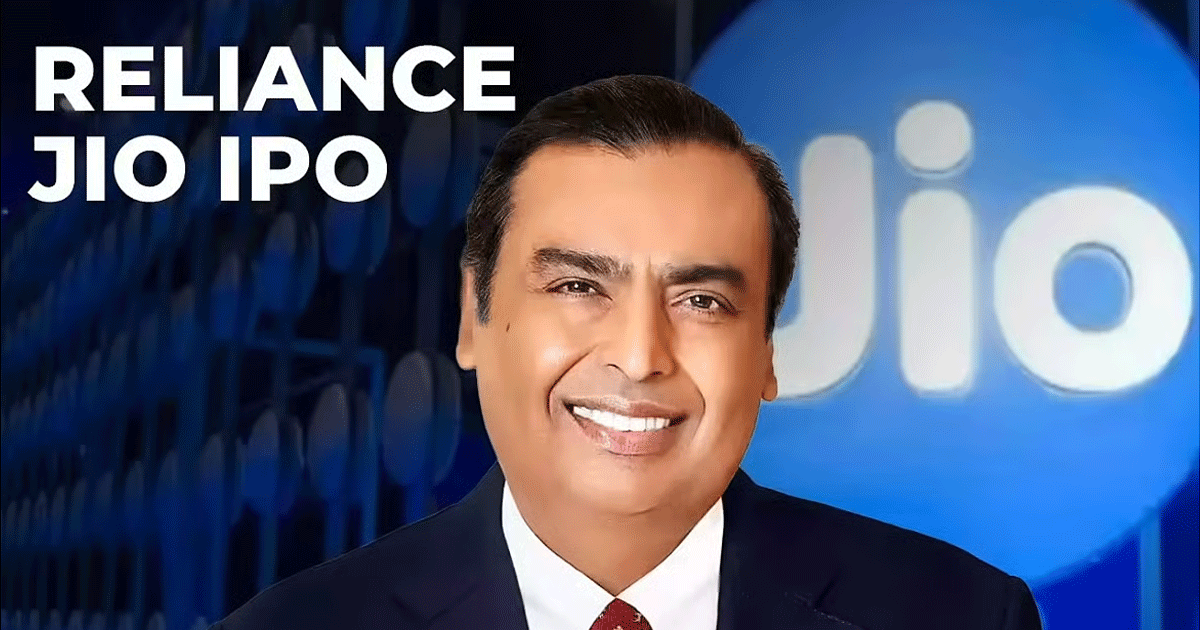
Reliance Industries Limited (RIL), led by the country’s richest man Mukesh Ambani, is planning to bring the biggest IPO ever. RIL is preparing to list its telecom business, Jio Infocomm, in the stock market. This IPO can be worth Rs 52,200 crore (about $6 billion).
Reliance Starts Informal Talks With SEBI
According to a Bloomberg report, Reliance has started informal talks with the Securities and Exchange Board of India (SEBI) to get approval to sell just 5% stake in Jio. If this approval is received, this IPO will break the record of Hyundai Motor India’s Rs 28,000 crore IPO.
Actually, under the current rules of SEBI, companies have to sell at least a 25% stake for public float. But Reliance has told SEBI that the Indian market does not have the capacity to bear such a big offer. Therefore, the company is seeking an exemption to sell 5% stake.
When Will The IPO Launch?
According to Bloomberg sources, this IPO can be launched in the early months of next year, although its size and timing will depend on the market situation. If this plan is successful, it will be the country’s largest IPO.
Jio’s IPO will give an opportunity to big foreign investors like Meta Platforms and Alphabet Inc. (Google) to sell their stake. In 2020, both these companies invested more than $20 billion in Jio Platforms. During this period, Jio’s valuation was $58 billion.
Which Other Investors Have Invested In Jio?
Apart from this, investors like KKR, General Atlantic, and Abu Dhabi Investment Authority have also invested heavily in Jio. Market experts say that Jio’s valuation can be more than $100 billion. However, Reliance wants to increase its income and subscriber base further before the IPO so that the valuation can be increased further.
-

 Crime3 years ago
Crime3 years agoClass 10 student jumps to death in Jaipur
-

 Maharashtra10 months ago
Maharashtra10 months agoMumbai Local Train Update: Central Railway’s New Timetable Comes Into Effect; Check Full List Of Revised Timings & Stations
-

 Maharashtra10 months ago
Maharashtra10 months agoMumbai To Go Toll-Free Tonight! Maharashtra Govt Announces Complete Toll Waiver For Light Motor Vehicles At All 5 Entry Points Of City
-

 Maharashtra11 months ago
Maharashtra11 months agoFalse photo of Imtiaz Jaleel’s rally, exposing the fooling conspiracy
-

 Crime10 months ago
Crime10 months agoBaba Siddique Murder: Mumbai Police Unable To Get Lawrence Bishnoi Custody Due To Home Ministry Order, Says Report
-

 National News10 months ago
National News10 months agoMinistry of Railways rolls out Special Drive 4.0 with focus on digitisation, cleanliness, inclusiveness and grievance redressal
-

 Maharashtra9 months ago
Maharashtra9 months agoMaharashtra Elections 2024: Mumbai Metro & BEST Services Extended Till Midnight On Voting Day
-

 National News11 months ago
National News11 months agoJ&K: 4 Jawans Killed, 28 Injured After Bus Carrying BSF Personnel For Poll Duty Falls Into Gorge In Budgam; Terrifying Visuals Surface



